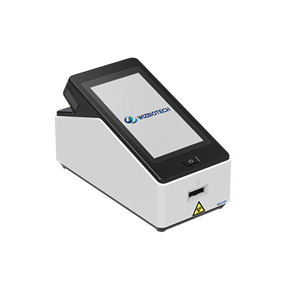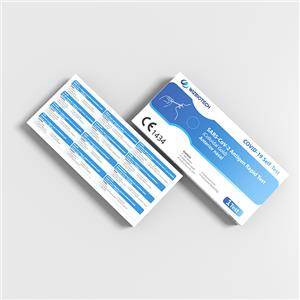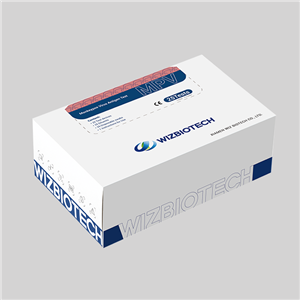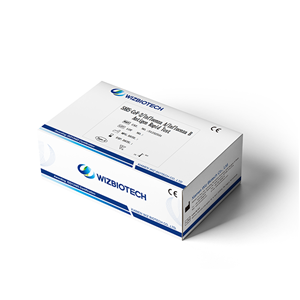Helicobacter pylori test method how to choose?
Helicobacter pylori infection affects nearly 50% of the global population and is an important cause of chronic gastritis, peptic ulcer, gastric cancer and other diseases. Timely detection and eradication of Helicobacter pylori can reduce the risk of gastric cancer. At present, Helicobacter pylori detection methods mainly include gastroscopy, 13C or 14C urea breath test, serum Hp antibody detection and fecal Helicobacter pylori antigen detection.
Gastroscopy
Gastroscopy is an invasive examination in which a small specimen of gastric mucosa is picked up and examined using a rapid urease test or a pathological stain. If the test is positive, the reliability of this method is high, especially if the pathological staining test finds bacteria, it can confirm helicobacter pylori infection. However, the result of this examination method is negative, and Hp infection cannot be completely excluded. That means there could be a missed test or a false negative.
The results of missed or false negative tests were mainly related to the location of the gastric mucosa specimen and whether the subject used antibiotics and drugs to suppress gastric acid in the weeks before the gastroscopy. Therefore, we cannot simply think that if Hp is negative under gastroscopy, there is no bacterial infection.
13C or 14C urea breath test
Breath test is the most common and effective method to detect Helicobacter pylori, the whole diagnostic process of about 30 minutes, is internationally recognized as the "gold standard" for Helicobacter pylori examination. The test is very simple and efficient, as long as the subject is fasting, take a special reagent capsule and "blow air" can be tested. It includes two tests, carbon-13 and carbon-14, both of which are more than 95% accurate. However, carbon-14 is a carbon isotope that has radioactive side effects and is not suitable for children, unmarried women and pregnant women, while carbon-13 is not significantly radioactive and can be used for testing children and pregnant women.
Serum Hp antibody detection
Serum Hp antibody testing is often referred to as a blood test, which generally detects serum HP-igg antibodies, which can reflect the status of Hp infection over a period of time, and is not affected by recent medication and diet. Because antibodies in the serum will exist for months to years after Helicobacter pylori infection is eradicated, even if the test result is positive, it can only indicate that it has been or is currently infected with helicobacter pylori, and it cannot distinguish between past and present infections.
Detection of Helicobacter pylori antigen in stool
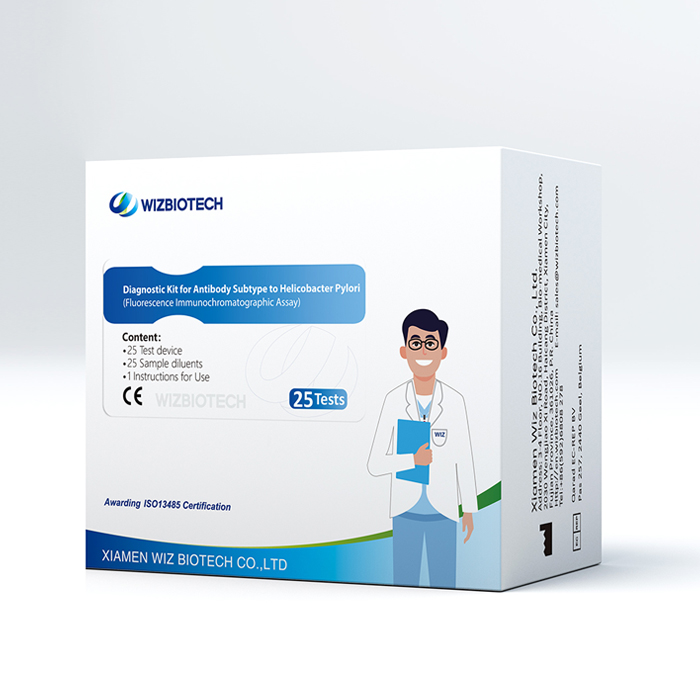
Fecal Hp antigen test is a simple, rapid and safe non-invasive test method with high sensitivity and specificity. Subjects only need to take stool samples without any oral reagents and blood tests. It is suitable for all ages (including children and the elderly) and all types of patients (including pregnant women) without any toxic reactions. Because the test is Hp antigen, it can accurately reflect the current infection of Hp, and positive can be identified as the current infection. Similar to breath testing, there is expert consensus to recommend fecal Hp antigen testing as an alternative method for diagnosis and evaluation of efficacy after eradication therapy. Fecal Hp antigen detection is also cheaper than breath test, which is suitable for mass screening and clinical application.

